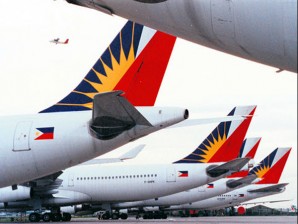What Went Before: PAL cabin layoffs
On June 15, 1998, Philippine Airlines (PAL) announced that it was laying off 5,000 employees, including 1,400 members of the Flight Attendants and Stewards Association of the Philippines (Fasap), purportedly to avoid bankruptcy.
In cutting down its then 13,500-strong workforce, PAL cited as factors the Asian currency crisis, the liberalization of the local aviation industry, the high cost of plane maintenance and the inability of the airline to increase fares on “grossly unprofitable missionary domestic routes.”
Fasap lodged a case against PAL for illegal dismissal and in July 2000, the National Labor Relations Commission ordered the laid-off attendants reinstated with back wages.
Upon appeal by PAL, the commission in May 2004 reversed its ruling and Fasap went to the Court of Appeals, but lost.
On July 22, 2008, the Supreme Court said PAL had failed to show that it was in such dire financial straits and ordered the company to reinstate the 1,400 Fasap members with full back wages and benefits.
Article continues after this advertisementIn October 2009, the court threw out a PAL motion for reconsideration.
Article continues after this advertisementPAL lodged a second motion for reconsideration, but on September 7, the Supreme Court’s Second Division upheld its previous ruling and said it would no longer entertain further appeals.
“The court resolves to deny with finality respondent PAL’s second motion for reconsideration. No further pleadings shall be entertained. Costs against the respondents. Let entry of judgment be made in due course,” the tribunal said.
“This case has dragged on for so long and we are now more than duty-bound to finally put an end to the illegality that took place; otherwise, the illegally retrenched employees can rightfully claim this court has denied them justice,” the court added.
Fasap president Bob Anduiza said that of the 1,400 flight attendants, 400 had been “recalled” but as “new hires,” affecting their seniority.
Anduiza added that the 400 have not yet received their back wages and another 500 were never recalled. Inquirer Research
